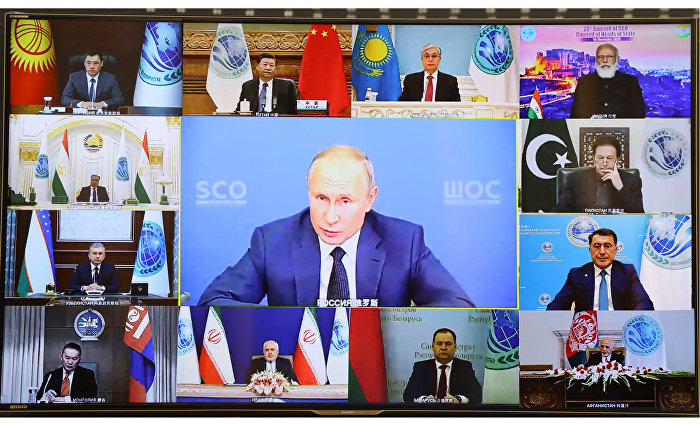
Modi will meet Putin, Xi at Uzbekistan SCO summit; what’s on agenda?
The upcoming edition of the summit is important for India as it will assume the rotational presidency of the SCO at the end of the event, with PM Modi likely to meet member countries for bilateral talks

Prime Minister Narendra Modi is among 15 world leaders who will attend the Shanghai Cooperation Organisation (SCO) summit, slated to be held at Uzbekistan’s Samarkand on September 15 and 16.
The upcoming edition of the summit is important for India, as it will take over the rotational presidency of the SCO at the end of the event. The presidency will stay with India till September 2023, making it the official host of the SCO summit next year.
World leaders including Chinese President Xi Jinping, Russian President Vladimir Putin and Pakistan Prime Minister Shehbaz Sharif are expected to attend the summit.
Key bilateral meetings likely
As the summit comes amid the Russian invasion of Ukraine and India’s border dispute with China, all eyes will be on vital bilateral meetings that will take place on the sidelines of the SCO.
Modi will reach Samarkand on September 14 and return on September 16. He is likely to hold bilateral meetings with a few of his foreign counterparts, but no details of an agenda have been released so far.
According to the External Affairs Ministry, Modi is slated to attend the 22nd meeting of the Council of Heads of State of the SCO. The meeting will focus on the “state and prospects of multilateral cooperation in the future” as well as issues of regional and global importance. Besides SCO members, it will be attended by Observer States, Secretary General of the SCO, Executive Director of the SCO Regional Anti-Terror Structure (RATS), and the President of Turkmenistan, among others.
Will Modi, Xi hold talks?
While this will be Modi’s first face-to-face encounter with Xi since their meeting at Brasilia on the sidelines of BRICS in 2019, it is yet to be confirmed if the two leaders will sit down for discussion.
China, on its part, has declined to comment on possible talks between the two leaders during the summit and has commented that the disengagement of forces in the Gogra-Hotsprings area of eastern Ladakh was a “positive development” to fix strained relationship between the two countries.
Russia, however, has confirmed that Putin and Xi will meet on the sidelines of the summit to strengthen bilateral ties following the slapping of sanctions on Moscow by European nations after its invasion of Ukraine.
Reports said Xi is also scheduled to pay state visits to Kazakhstan and Uzbekistan this week.
First in-person summit after COVID
This will be the first in-person SCO summit after the COVID pandemic. The last one was held in June 2019 in Bishkek, Kyrgyzstan. Preparations for the summit have been going on for the last six months.
The SCO, a Shanghai-headquartered inter-governmental organisation founded in June 2001, currently comprises eight member states – China, India, Kazakhstan, Kyrgyzstan, Russia, Pakistan, Tajikistan and Uzbekistan. It also has four Observer States – Afghanistan, Belarus, Iran and Mongolia, and six Dialogue Partners – Armenia, Azerbaijan, Cambodia, Nepal, Sri Lanka and Turkey.
Iran is currently an Observer State and expected to be formally admitted as a member state this time.
Why SCO matters
The population of SCO countries together constitutes half of the world’s population.
The total trade value of the member states of SCO has reportedly risen from $667 billion in 2001 to $6 trillion in 2020, reflecting the expanding global trade footprints of the organisation.
According to China-based news portal CGTN, the country has seen an exponential spike in its trade volume over the past two decades – from $12 billion to $245 billion – after strengthening trade ties with SCO members. China, in a bid to facilitate post-COVID economic recovery among SCO countries, has also pledged to share its market opportunities and achieve its aim to reach $2.3 trillion in cumulative trade with member states by 2025.
“All the countries or the member countries within this region or this organisation are the emerging countries. So, that means, we have a massive supply of labour, skilled labour and the country’s fast paced development. And, most importantly, within the regions, within the member countries, we enjoyed around two decades of a peaceful period,” Wu Haifeng, executive director, Shenzhen Institute of Data Economy, told CGTN, explaining the boost in trade.
Integrating powers
In a recent editorial for an Indian daily, Uzbekistan President Shavkat Mirziyoyev also indicated that the alliance has been instrumental in integrating global economic and political powers.
“The Shanghai Cooperation Organisation…is a unique interstate structure that has managed to unite countries with different cultural and civilizational codes, their own foreign policy guidelines and models of national development,” Mirziyoyev wrote.
While India is building a stable relation with central Asian countries including Russia, the platform has been vital for it to address the issues of cross-border terrorism, organised crime, illegal migration and human trafficking.


